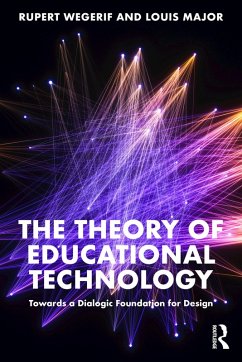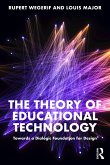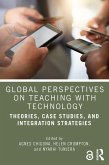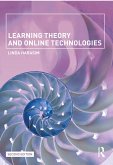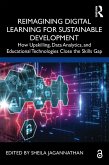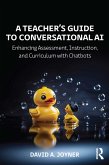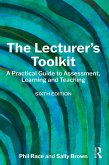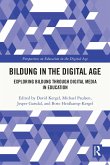Dieser Download kann aus rechtlichen Gründen nur mit Rechnungsadresse in A, B, BG, CY, CZ, D, DK, EW, E, FIN, F, GR, HR, H, IRL, I, LT, L, LR, M, NL, PL, P, R, S, SLO, SK ausgeliefert werden.
Diana Laurillard, Professor of Learning with Digital Technology, UCL.
It's sometimes said that pioneers in educational technology have no time for history and no use for theory. Setting cynicism aside, it remains true that connecting theory and practice in educational technology is difficult work, just as it is in education. Here's the heart of this book's argument: it is necessary to reframe the relations between technology and education, in theory and practice. Technology is not an adjunct to education. It precedes and gives purpose to education. It always has. Wegerif and Major succeed in opening a dialogic space within which we can collectively reshape relations between tools and goals, ideas and actions. This is a timely and important contribution.
Peter Goodyear, Emeritus Professor of Education, The University of Sydney, Australia
In this volume, Wegerif and Major provide an inspired and innovative vision for understanding the role of technology in education. Written in an accessible way for wide readership, the authors harness "a new dialogic theory of educational technology" that both informs and benefits from the examples of pedagogical practice they provide. The result is a powerful set of insights into how new technologies affect both the individual and social dimensions of pedagogical practice. Their dialogic approach is perhaps the best way we have to date to generate these insights, and there are probably no other authors who could outline the practical applications so well. This volume promises to have major implications for several disciplines.
James Wertsch, Department of Anthropology, Washington University in St. Louis.
This inspiring book puts dialogue at the heart of a new technology-enhanced education. Combining the rich history of educational technology with illuminating case studies and philosophical depth, it makes a compelling case for a science of educational design that connects learners in creating meaning across cultures, spaces and times. The Theory of Educational Technology is deeply researched, lucid and optimistic. It offers educators, technologists, researchers and policy makers a shared foundation to build education for a digital future.
Mike Sharples, Emeritus Professor of Educational Technology, Institute of Educational Technology
In a world of pandemics, social media, Internet information access and ChatGPT, schools hastily adopt online technologies. However, prevailing thinking about educational technology is steeped in outmoded perspectives. Sophisticated recent theories of dialogic learning and technology adaptation open new opportunities for educational approaches that avoid the perils of inappropriate technological tools. These new theories are based on sophisticated philosophical developments of the past hundred years, many of which are difficult to comprehend. Fortunately, this book reviews and considers deeply the most important innovative theories, pedagogies and technologies - and their philosophical bases - in an eminently readable, insightful, critical and coherent presentation.
Gerry Stahl, Professor Emeritus of Information and Computer Science, Drexel University, USA, and Founding Editor, International Journal of Computer-Supported Collaborative Learning
Educational science can be considered a design science, concerned with two questions: What should people learn and teach? And how can we assist people in pursuing such educational goals? This insightful book addresses these key questions with a focus on the design of educational technology. The dialogue between the concrete cases and theoretical framing shows how technology can be put to work in our endeavours to engage, support and connect students, and expand their horizons. The book is unique in combining philosophical depth with convincing examples.
Arthur Bakker, Professor of STEM Education and Curriculum at the University of Amsterdam, the Netherlands

